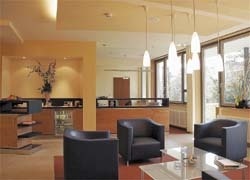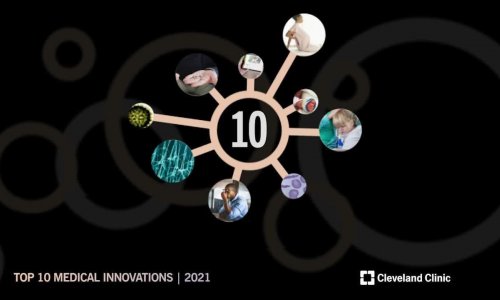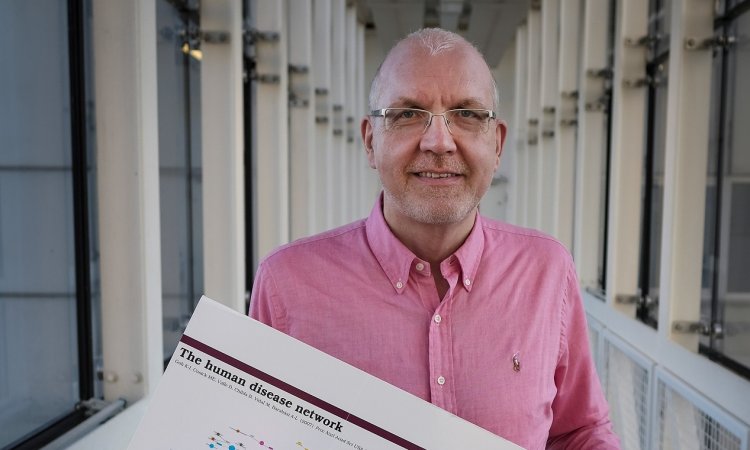Prostate cancer
Clinic's technique preserves continence and potency in 96% of patients
The Martini Clinic, a private clinic located at the Hamburg-Eppendorf University Hospital (UKE), specialises exclusively in the diagnosis and therapy of one medical condition: prostate cancer.

Modelled on similar clinics in the USA, such an approach is unique in Germany, but has proven a success in just two years. During the first year, 200 patients underwent surgery, generating a turnover of 2.4 million euros. ‘Last year, our success continued,’ said Dr Michael Moormann, Director of the Martini Clnic. ‘We performed 450 surgical interventions.’ The clinic met growing demand by increasing its beds from nine to 17.
Martini patients are now international. Along with Germany, they hail from countries such as Greece, Cyprus, Sweden, Austria, Poland, the Ukraine and, increasingly, from Arabic countries. For all of them the facility not only provides high performance medicine and amenities similar to those of a luxury hotel (meals are à la carte), but it is also conveniently within easy reach of Hamburg airport, and offers a special accommodation package for family and friends. Private rooms have en suite bathrooms, refrigerators and multimedia terminals with internet access.
More importantly, the nurses have been trained in the care of prostate cancer patients, and most important of all, the two renowned heads of surgery enjoy an excellent reputation, throughout Europe, for nerve-preserving radical prostatectomy. This ‘soft’ surgical procedure, combined with high quality care, means the Martini patients can be discharged within six days – particularly appreciated by businessmen.
Invented and developed by UKE Hamburg, the success of this procedure depends a lot on the surgeon’s experience. Entry is via the abdominal wall, so the nerve bundles running along the prostate gland are preserved. Professor Hartwig Huland, who has been director of the UKE Urology Department since 1992, was one of the inventors of the procedure. He and Dr Markus Graefen perfected it and, to date, they have carried out this operation more than 5,000 times.
In addition, the professor’s current studies impressively demonstrate that potency and continence can be maintained in 96% of patients.
According to these two chief surgeons, today the surgical removal of the prostate is considered the gold standard for patients with localised prostate cancer. ‘The soft surgical method that we have perfected has proved much more successful than new technologies,’ Professor Huland pointed out.
The clinic also takes an innovative approach to drug-based therapy, which aims to improve potency after surgery. Dr Graefen explained: ‘The precautionary therapy with potency-increasing medication in the particularly vulnerable post-operative phase substantially increases erectile function.’
The clinic obviously also offers all the established therapies that are adapted to fit the health and personal situation of the individual patient. ‘The range of services we offer is unmatched in Germany,’ Dr Graefen confirmed.
Details: www.martini-klinik.de
08.03.2007





